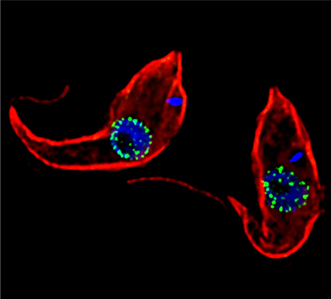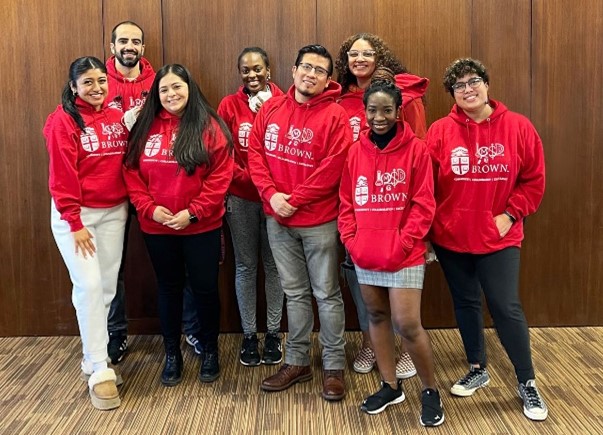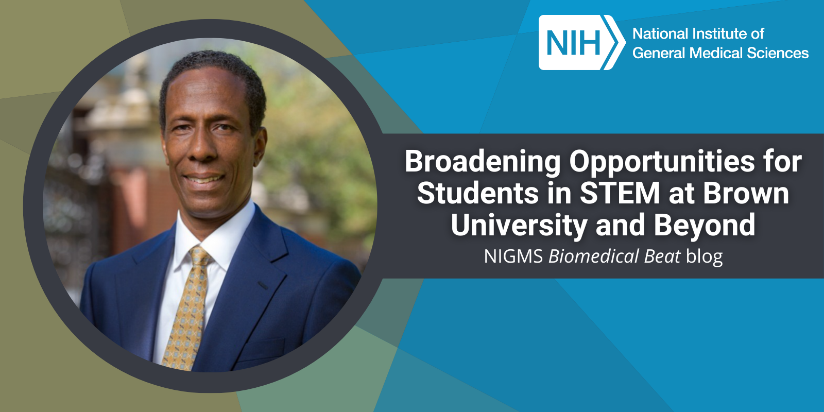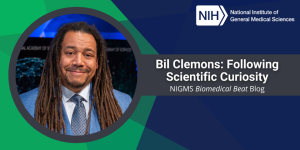
Andrew G. Campbell, Ph.D., a professor of medical science at Brown University in Providence, Rhode Island, and previous dean of the graduate school, is passionate about researching understudied diseases and helping students reach their full potential.
Dr. Campbell’s lab has studied the single-cell organism Trypanosoma brucei (T. brucei), a parasite transmitted through the bite of the tsetse fly, which is only found in specific regions of Africa. In humans, T. brucei causes African Trypanosomiasis, also known as sleeping sickness. Symptoms of this illness include headache, weakness, tiredness, and altered sleep schedules; and if left untreated, it can be fatal. Dr. Campbell studies the function of certain enzymes found in T. brucei and other infectious agents, like hepatitis B virus and HIV, with the hope that they can serve as targets for new treatments for diseases.
Guiding the Next Generation

Outside of research, Dr. Campbell is dedicated to supporting students from diverse backgrounds, a passion that stems from personal experience. As an undergraduate, he was supported by a training grant from NIGMS aimed at broadening participation in biomedical research. He carried the positive experiences he had in that program to Brown University, where he founded a similar NIGMS-funded program—the Initiative for Maximizing Student Development (IMSD)—in 2008.
“Through my position as director of a graduate program, I found that there were students who were just shy of being ready for graduate school for one reason or another. We thought that we could help those students by filling in the gaps in their background preparation,” Dr. Campbell says. Brown’s IMSD leadership team developed a series of skills-based learning modules to give newly accepted graduate students the tailored training they needed, such as how to read and write scientific articles or strengthen quantitative skills. The program has evolved to offer updated versions of the same learning modules over the life of IMSD scholars’ graduate careers so that they can take the modules as needed.

IMSD at Brown serves as an integration hub on campus, bringing together students from a wide range of backgrounds among 20 different graduate programs and creating a tight-knit community and a sense of belonging for its scholars. It’s also successfully preparing these scholars for future careers in the biomedical and scientific workforce. In a study of the program’s 10-year outcomes, IMSD scholars—despite having early gaps in their background training and often not coming from prestigious institutions—performed as well as non-IMSD scholars in metrics such as first-author publications, total publications, and time to degree. Plus, IMSD scholars have better retention rates than non-IMSD scholars at Brown, for which Dr. Campbell credits the program’s structured guidance and community.
Leadership at Brown, including Dr. Campbell, saw an opportunity to further support students interested in pursuing careers in biomedical research and founded a Postbaccalaureate Research Education Program (PREP), another NIGMS-funded training program. Like IMSD, PREP at Brown is designed to support students to achieve their goals of careers in the biomedical research workforce. Through PREP, students gain an extra year of classes and direct research experience in a laboratory on campus after they’ve finished their undergraduate degrees, which makes them stronger applicants for graduate school.
Dr. Campbell calls the PREP program an on-ramp to graduate school. “PREP students are exposed to the graduate environment, graduate-level coursework, and cutting-edge research—they’re truly getting the grad school experience before it even starts,” he says. PREP trainees also receive mentorship from the IMSD scholars. The two cohorts interact throughout the school year at joint events, including a welcome party at the beginning of the year, where the students get to know each other and to learn more about graduate school.
Making a Lasting Impact
At the heart of both of Brown’s IMSD and PREP programs is the goal to promote broader participation in the biomedical research workforce. One aspect of these programs that Dr. Campbell is particularly proud of is how they’ve demonstrated that any student—regardless of background, origin, or undergraduate institution—can succeed at the highest level.
Based on these results, he encourages universities to reconsider their approach to recruiting and training future scientists. “My hope is that there won’t be a need for IMSD or PREP in the future because all graduate programs will have embraced these ideals to change the landscape of the biomedical research community,” he says.
The IMSD and PREP programs at Brown are supported through grants T32GM144926 and R25GM125500, respectively.
Other Posts You May Like
- Understanding Signaling Through Cell Membranes: Q&A With Chrystal Starbird
- Bil Clemons: Following Scientific Curiosity
- From Science Fair to Science Lab: Q&A With Chelsey Spriggs
- Haley Bridgewater: Taking the Sting Out of Vaccines
- Investigating the Inner Workings of Ion Channels With Sudha Chakrapani







